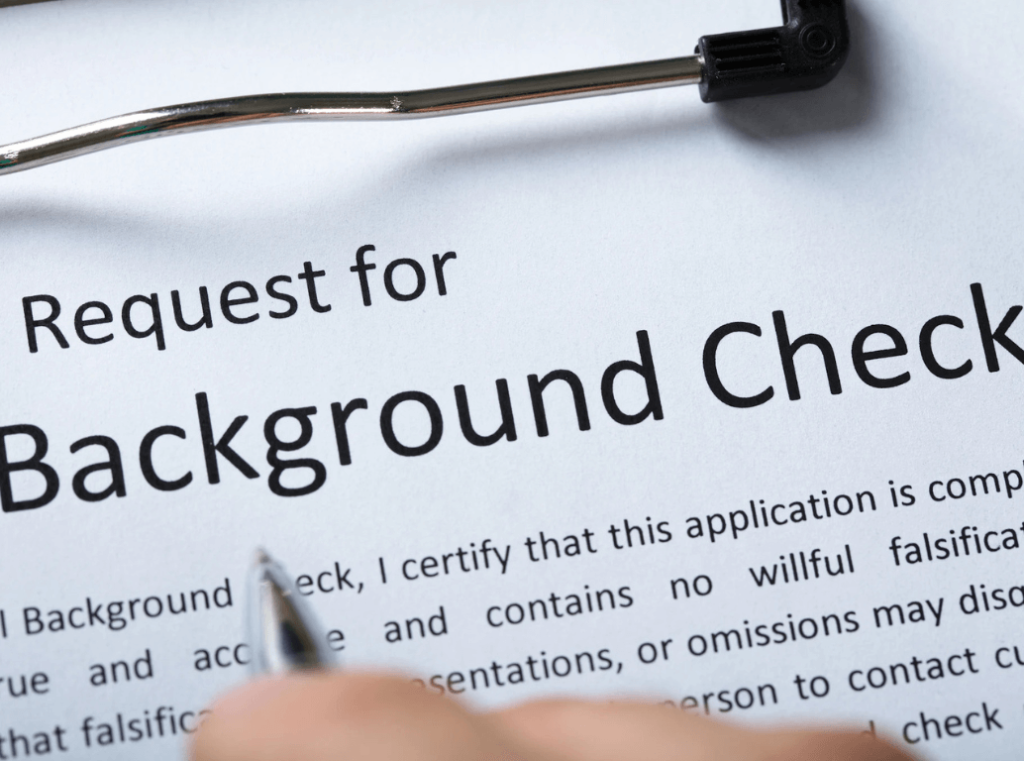You’ve found the perfect candidate through a recruiter, signed the offer, and welcomed them on board… only to discover weeks later that their qualifications weren’t quite what they claimed, or worse, a criminal history was never flagged. It’s a scenario many businesses have faced, often under the assumption that the recruiter had already covered all the bases.So whose job is it to run background checks during the recruitment process — the recruiter who sources the candidate, or the company that makes the final hire? Getting it wrong can quickly translate into wasted money, reputational damage, or even legal consequences. Both recruiters and employers have a role to play, and understanding those roles is the key to building a safer, more reliable hiring process.

Background checks and compliance in South Africa
Conducting relevant background checks protects businesses from fraud, misrepresentation, safety risks, and compliance failures. Different checks uncover different risks. For example, a qualification verification flags misrepresented degrees, an employment check confirms past roles and responsibilities, and an ID or criminal record check helps confirm whether someone is safe and suitable for the role. Credit checks are often used in financial positions, while reference checks provide a clearer view of past performance.
The value of background checks in recruitment comes down to two points:
- Better hiring decisions: Employers can confirm a candidate’s credentials and suitability before making a commitment.
- Reduced liability: Businesses that can prove they took reasonable steps in screening are better protected (legally and reputationally) if an incident occurs.
In South Africa, background checks also come with strict compliance requirements, which brings the question of responsibility into sharper focus. Whether handled by a recruiter or the company, checks must be done correctly and legally. Written or digital consent is required before conducting any checks, and the Protection of Personal Information Act (POPIA) regulates how candidate data is collected, stored, and deleted. Ignoring these obligations risks financial penalties and can damage trust with employees and clients.
> Learn more about conducting background checks legally in South Africa <

Do recruiters run background checks?
Most recruitment agencies run background checks as part of their process. These often include identity verification, employment history, education, and, in some cases, a criminal record check before a candidate is presented to a company. The aim is to give employers confidence that the short-listed candidates are who they say they are.
There are clear advantages to recruiter-led checks:
- A wider talent pool, already screened: Recruiters can cast the net further and filter out obvious risks before CVs reach the company.
- Speed and efficiency: Established systems allow agencies to verify candidate details quickly, keeping hiring timelines on track.
- Consistency and fairness: Standardised checks help reduce bias and ensure every candidate is measured against the same criteria.
However, there is a limitation. Recruitment background checks are usually standardised across industries and roles, which means they may not fully address the specific risks or compliance needs of a company. For example, a financial services firm may require deeper credit vetting than what a recruiter typically provides. This is where the company’s own responsibility becomes critical.

The company’s role in recruitment background checks
Even when a recruiter conducts initial screening, the final responsibility always rests with the company. Legally and operationally, the employer is ultimately accountable for the people they hire.
HR-led checks can be tailored to the specific risks of the industry and the role in ways that recruiter packages often cannot. For example:
- Finance and banking: Stricter credit and fraud checks to reduce the risk of embezzlement or financial crime.
- Healthcare and education: Screening for relevant criminal records and verifying qualifications to protect patients and learners.
- Government and public sector: Vetting for integrity, compliance, and trustworthiness in sensitive public-facing roles.
- Security and law enforcement: Comprehensive criminal record checks to ensure reliability and suitability for safety-critical work.
- Transportation: Licence and criminal checks for pilots, drivers, and operators to ensure passenger safety.
- Legal and professional services: Checks for lawyers, accountants, and other professionals to meet regulatory and ethical standards.
Recruitment background checks done by agencies can be a strong filter, but only the employer can align the screening process with the real risks of the role. If an oversight leads to harm, liability still falls on the business. That’s why recruiter checks should be treated as the first step, with the final responsibility always sitting inside the business.

Safer hiring through shared responsibility
The most effective hiring process is a partnership. Recruiters and employers each have a role to play, and problems usually arise when one assumes the other has “done it all.” Here’s how the responsibility typically divides:
- Recruiters act as the first filter. They screen candidates, run standardised recruitment background checks, and present a shortlist that gives the employer confidence they’re looking at genuine, qualified people.
- Employers are the final decision-makers. They must align checks to the risks of the role, confirm compliance with local regulations, and carry the ultimate accountability if something is missed.
The strongest safeguard is to bring a specialist background screening provider into this mix. A service like Dots360 helps both recruiters and employers by:
- Automating and speeding up checks.
- Ensuring compliance with POPIA and the EE Act.
- Providing tailored checks based on role and industry.
- Preventing duplicated, inconsistent, or missed checks.
When all three work together, businesses get the speed of agency sourcing, the assurance of HR-led responsibility, and the confidence of independent verification.
Hiring through recruiters can speed things up, but if background checks miss the mark, the real cost still lands with your business. Aligning checks with the role and industry is the only way to protect your people, your reputation, and your bottom line.Whether you hire through an agency or manage recruitment in-house, Dots360 takes the guesswork out with fast, compliant, and tailored recruitment background checks you can trust. Want to simplify hiring and reduce risk? Get started with Dots360 today, and follow us on Facebook, LinkedIn, or X for more tips.

